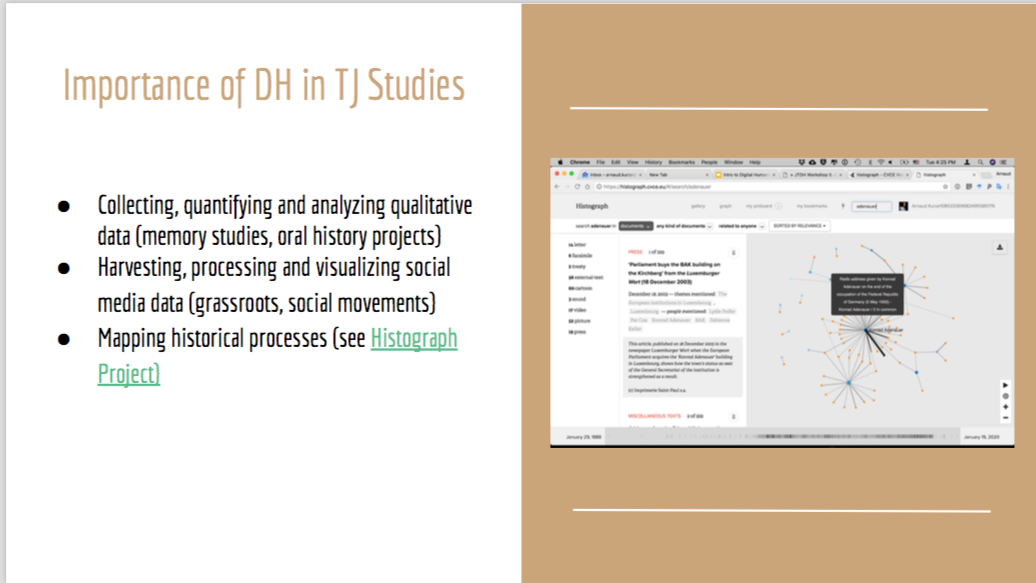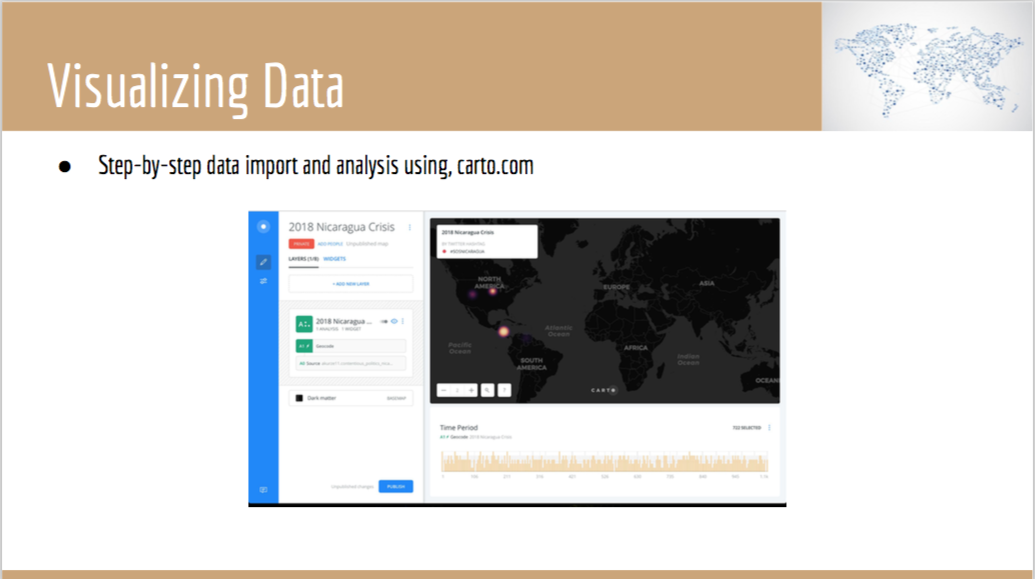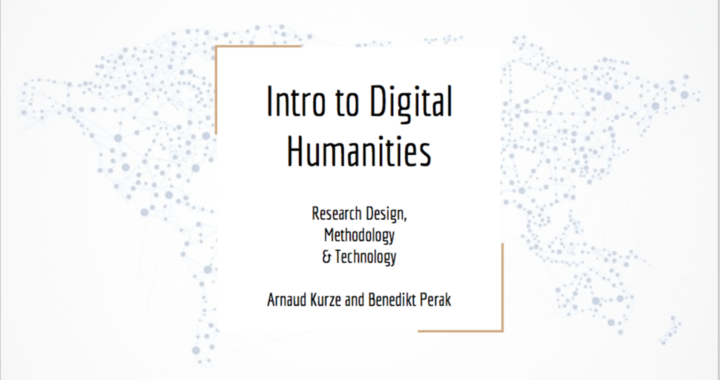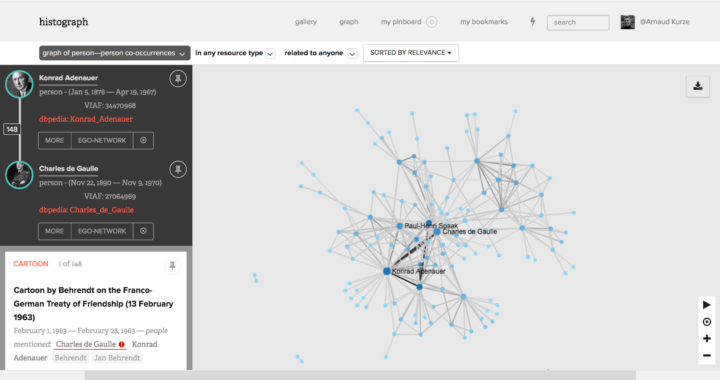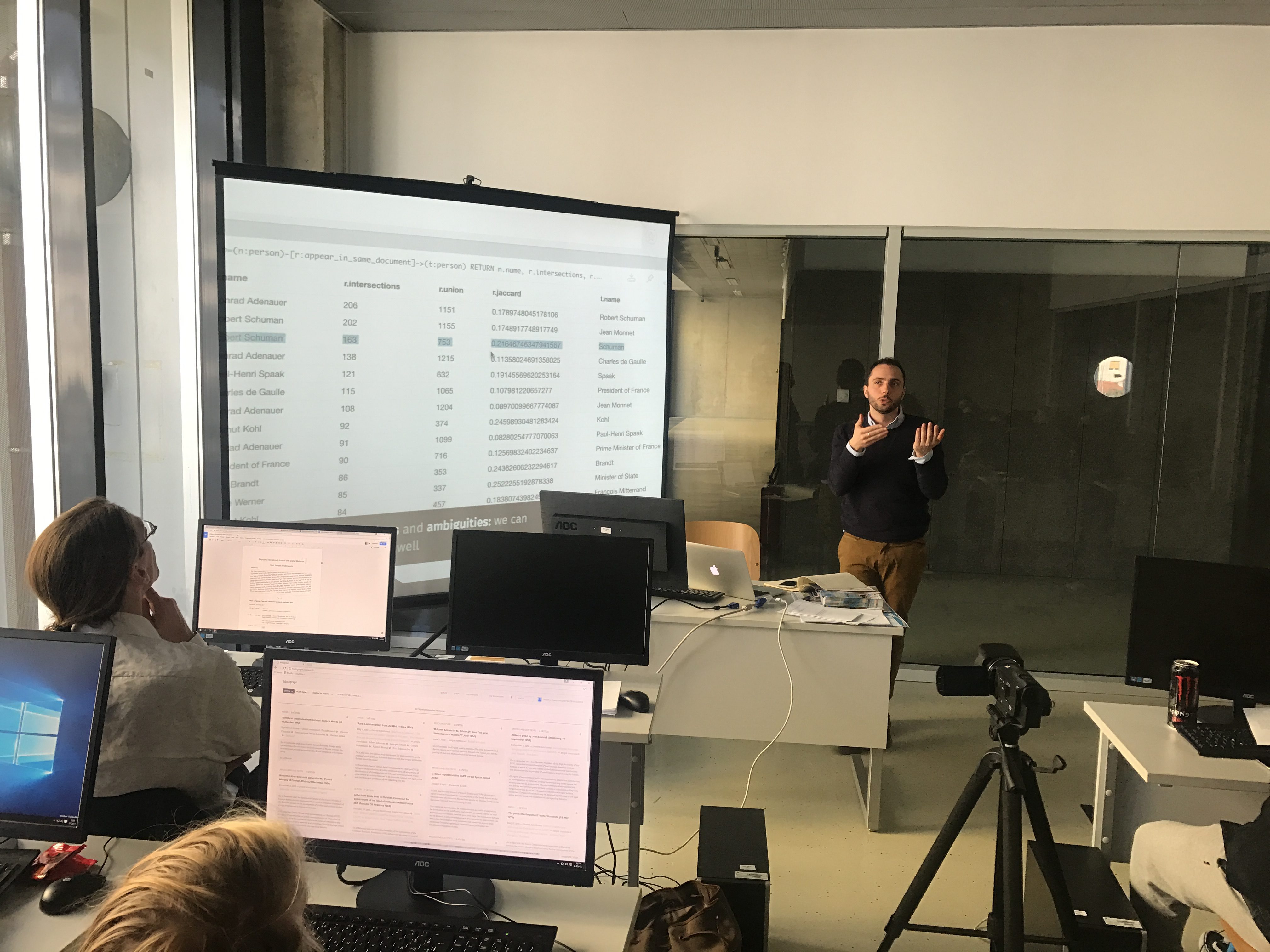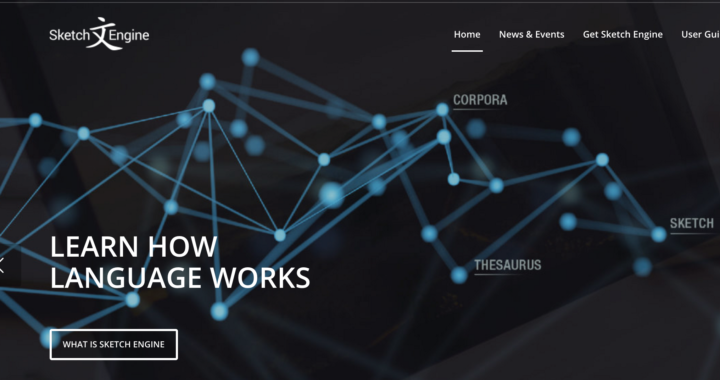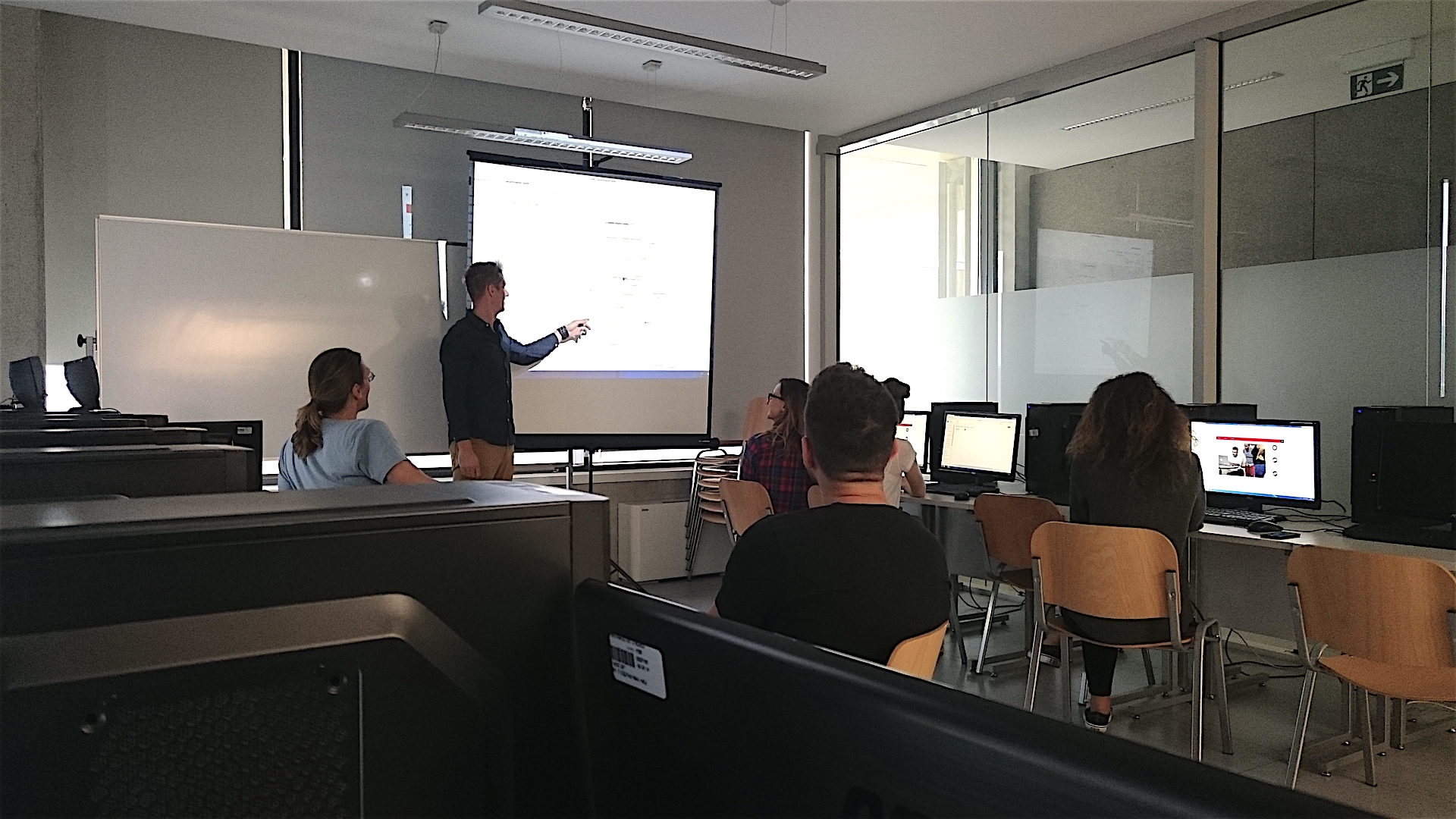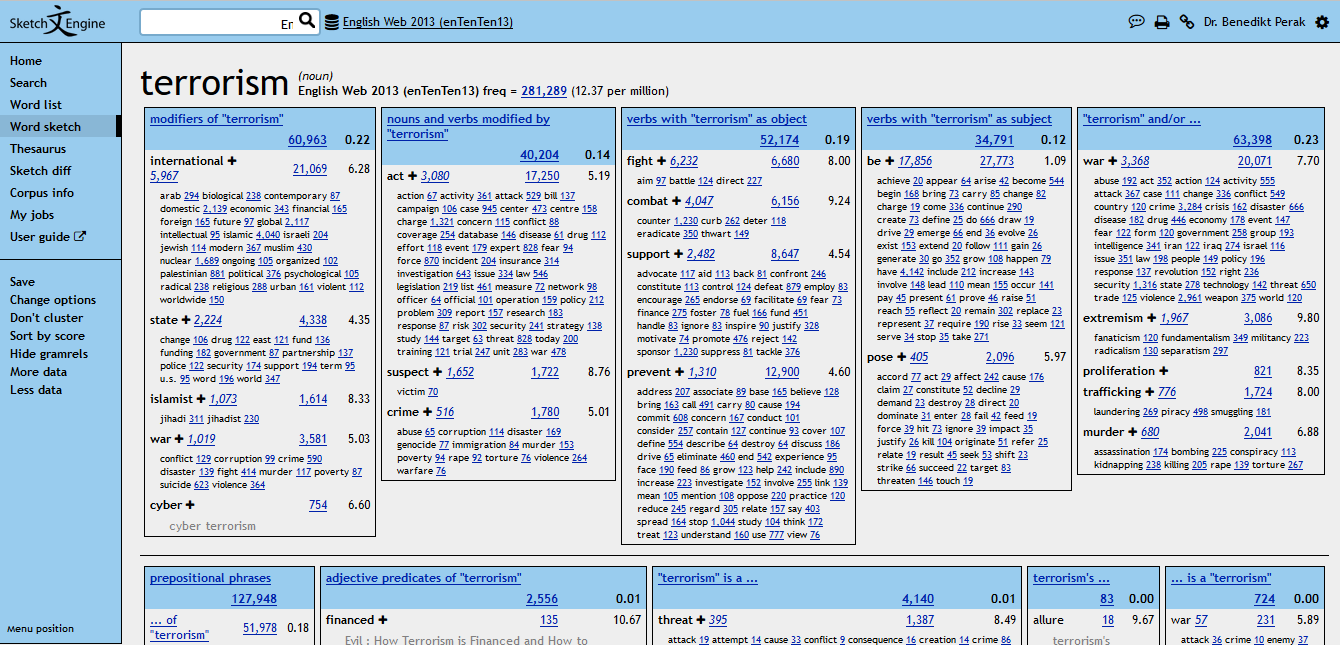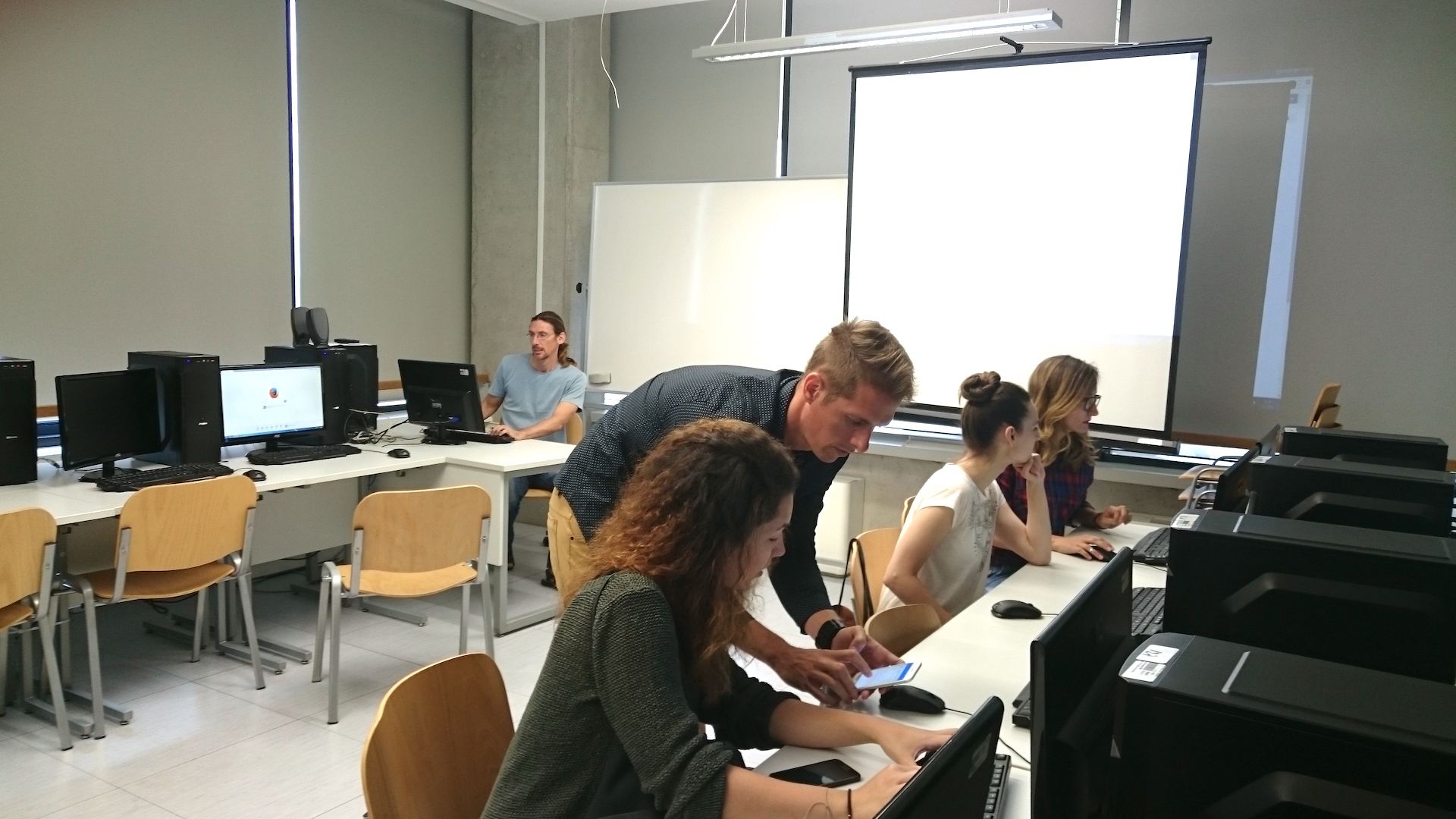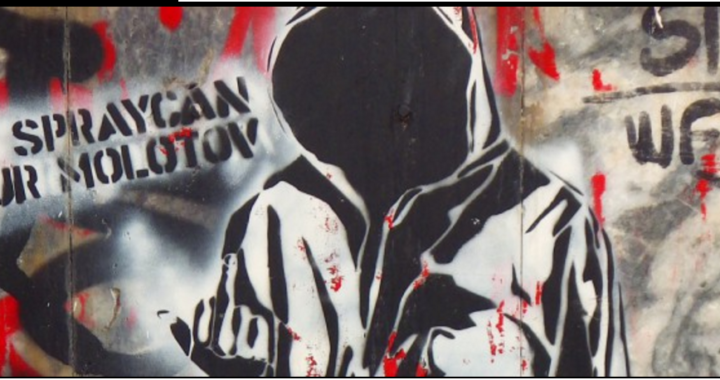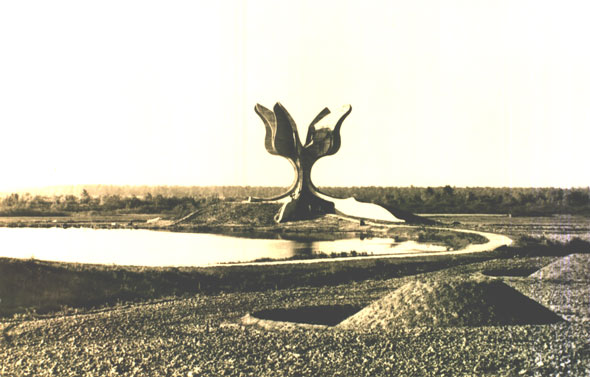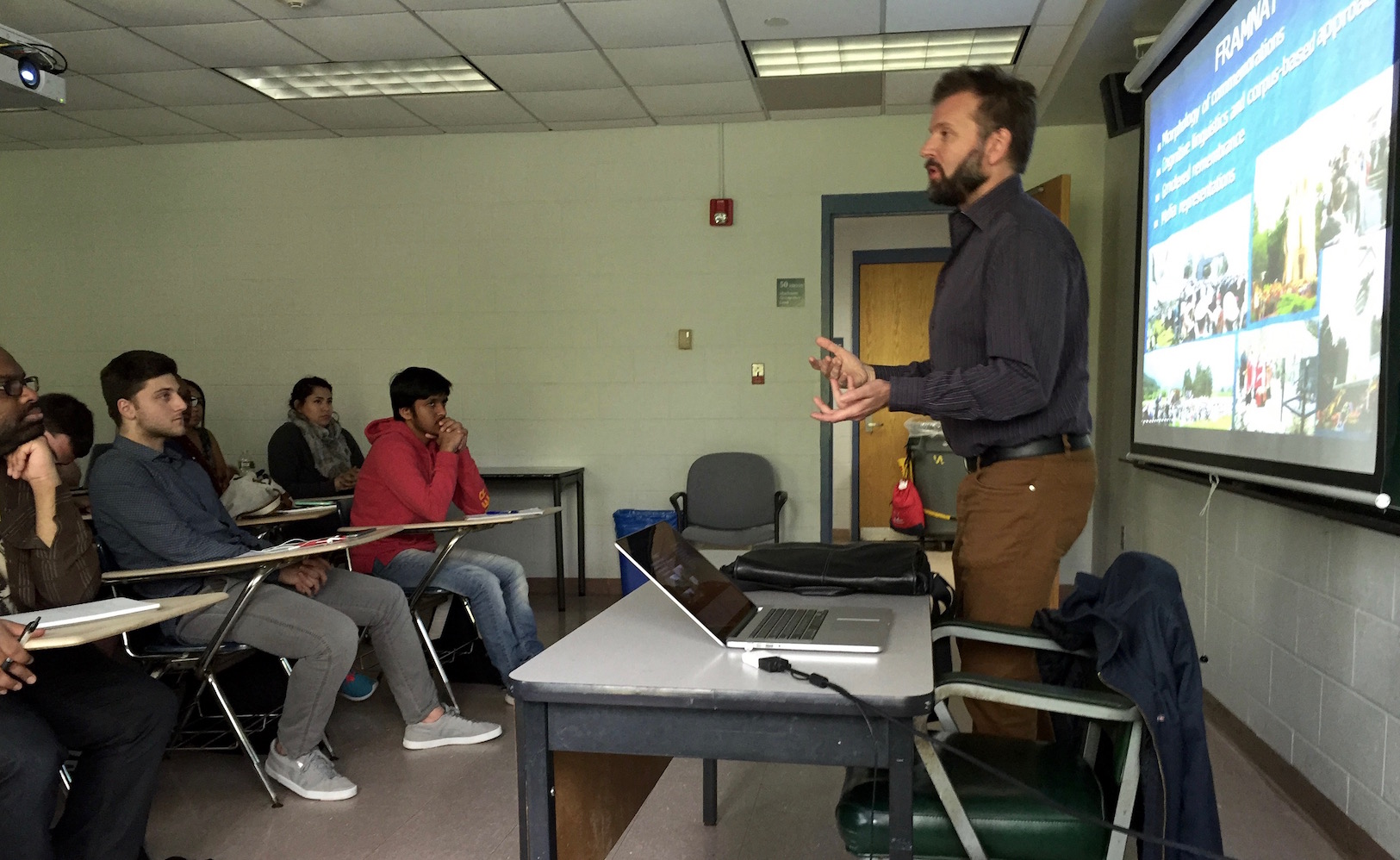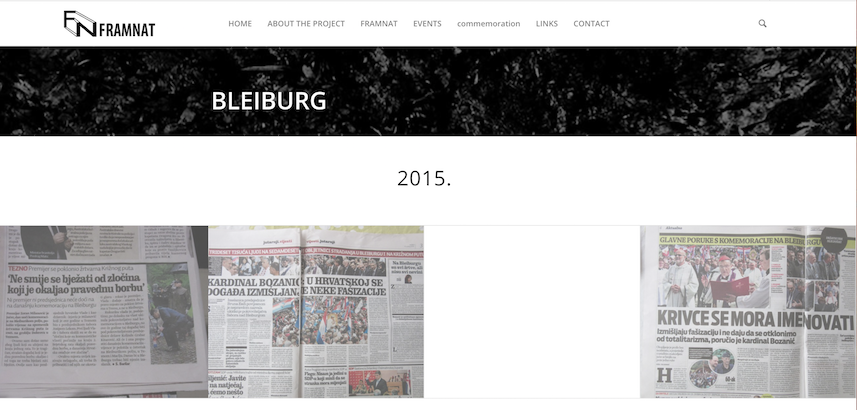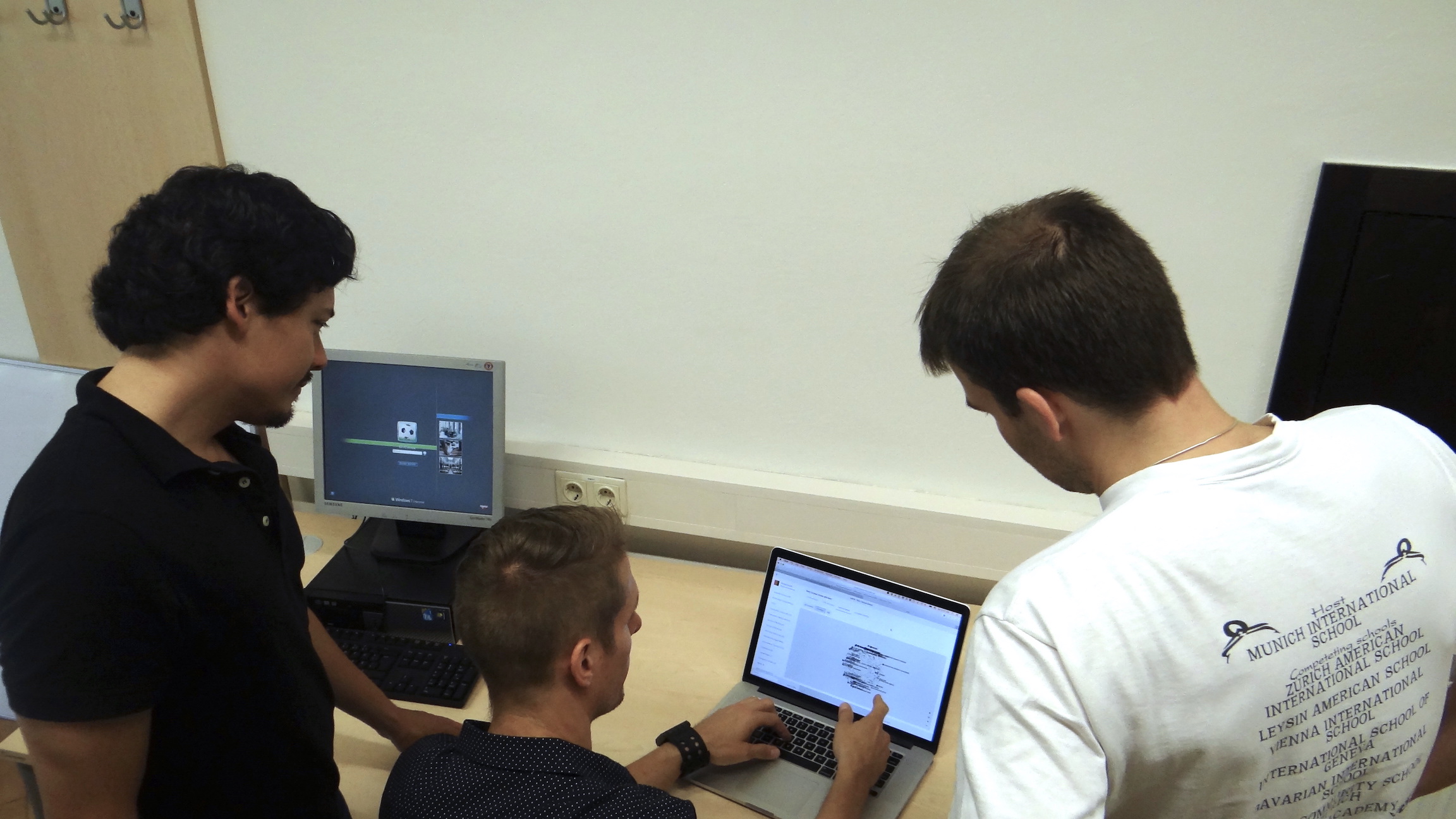 Dr. Arnaud Kurze (center), Assistant Professor at Montclair State University, explaining visualized data clusters to participants.
Dr. Arnaud Kurze (center), Assistant Professor at Montclair State University, explaining visualized data clusters to participants.
Between July 1-2, 2016 the Centre for Southeast European Studies at the University of Graz held a workshop on digital methods in the humanistic social sciences in collaboration with Montclair State University. It brought together participants from the United States and Europe to explore contemporary sociopolitical issues across the Mediterranean Basin and Southeast Europe using digital research technology. The workshop goal was to strengthen cross-regional and interdisciplinary collaboration, introducing new conceptual frameworks and novel ways of conducting research in the humanistic social sciences.
Methods that were discussed during the workshop included data mining, data visualization and text analysis, among others. Based on interactive, praxis-oriented sessions, participants were introduced to innovative, critical social research methods to capture and assess social, political and cultural phenomena, including contentious politics, memory politics and transitional justice during regime change and in post-authoritarian and post-conflict settings.
The timely event was organized in part to respond to the political turmoil in the region. For instance, the impact of the global financial crisis on Southeast Europe, the ramifications of the post-Arab Spring repressions across the Middle East and North Africa (MENA), and the institutional crisis of the European Union, among others, highlight the need and opportunity to analyze these complex social issues with the help of new digital methods.
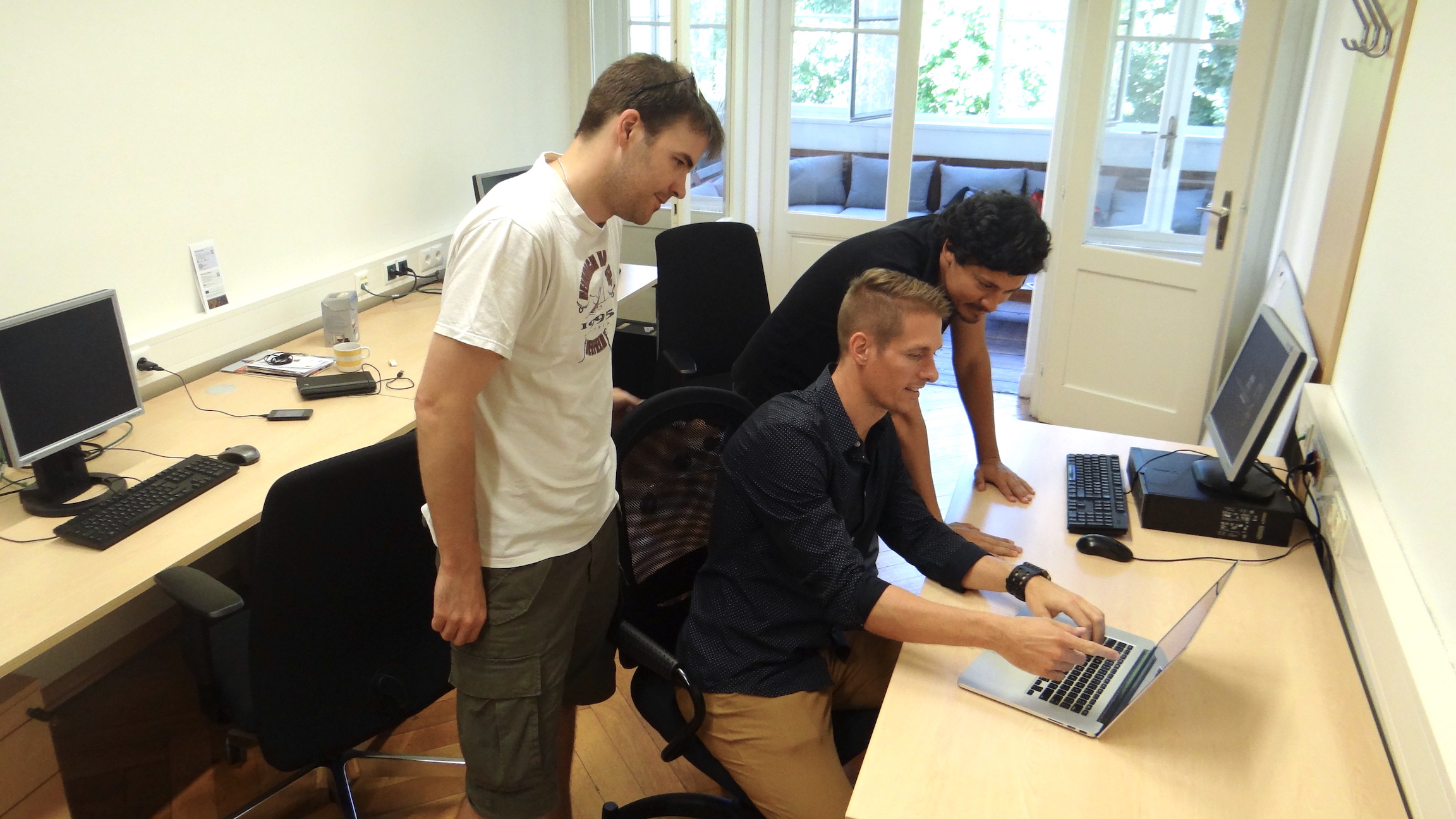
David Brown (left), Uni Graz, and Dr. Christopher Lamont (right), University of Groningen, discussing research findings.
Various sessions provided an opportunity for participants to showcase their individual research projects, such as the project of David Brown on visual cultures and protest in the Balkans. Scholars shared their research findings and received valuable feedback from colleagues on different conceptual, methodological and empirical aspects of their studies.
Moreover, guest speaker, Dr. Arnaud Kurze, Montclair State University, introduced a digital open-source text analysis software called SVEN, which combines qualitative and quantitative data analysis. It is an experimental tool to collect, organize and analyze text fragments from online and offline documents. As such, it is an excellent tool to respond to the technological needs of a data-driven world, providing precise analytical solutions to collect and assess data. SVEN’s work flow is simple. It increases the information accessibility via visualization methods and automatic term extractions. As a result, it allows researchers to trace emerging social phenomena through time and allows for a better understanding of the collected data, which facilitates the data evaluation process. SVEN is also useful to elaborate policy strategies to help address sociopolitical issues.
In sum, the workshop harnessed social scientists working on a variety of sociopolitical, socioeconomic and sociocultural issues with new ideas to better capture correlational and causal complexity. In addition, it provided specific tools for mixed methods, including text analysis, data mining and data visualization. As a result, it fueled potential future research collaboration between scholars from various disciplines, including political science, sociology, history and linguistics, among others, and has strengthened the existing ties between Montclair State University and the University of Graz.
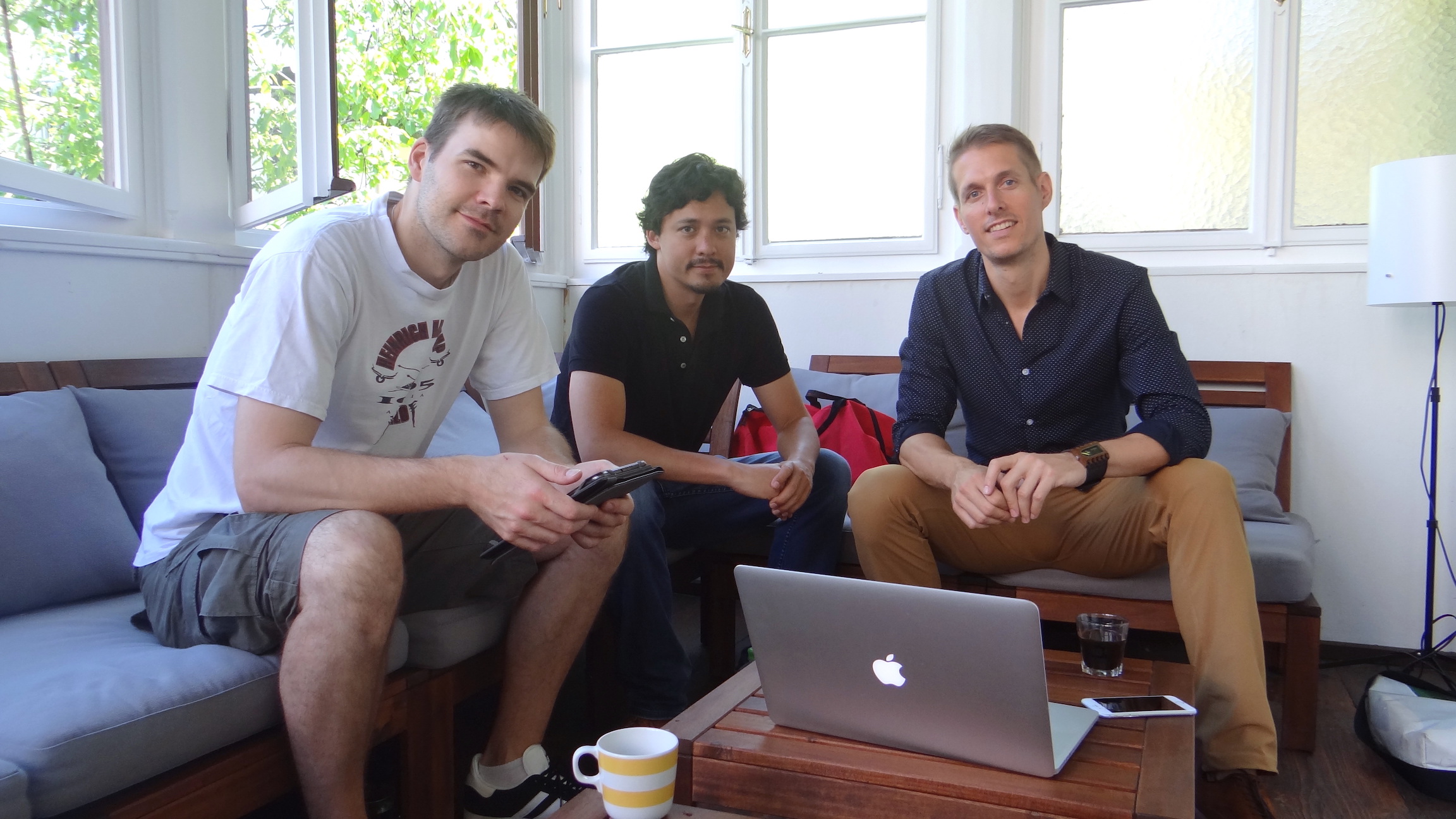
Workshop participants wrapping up a session on the open-source text-analysis tool SVEN.
Click here for workshop flyer.
